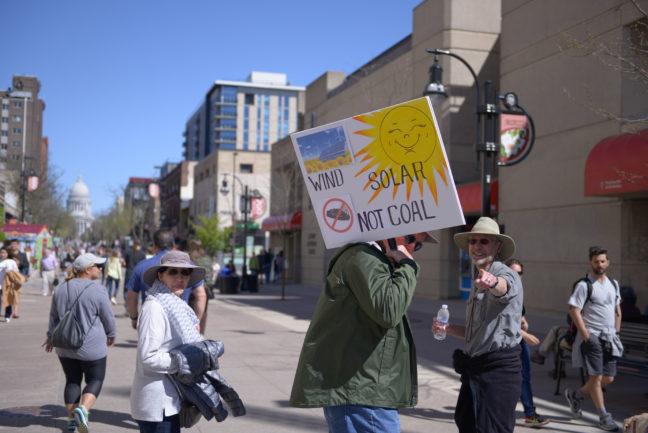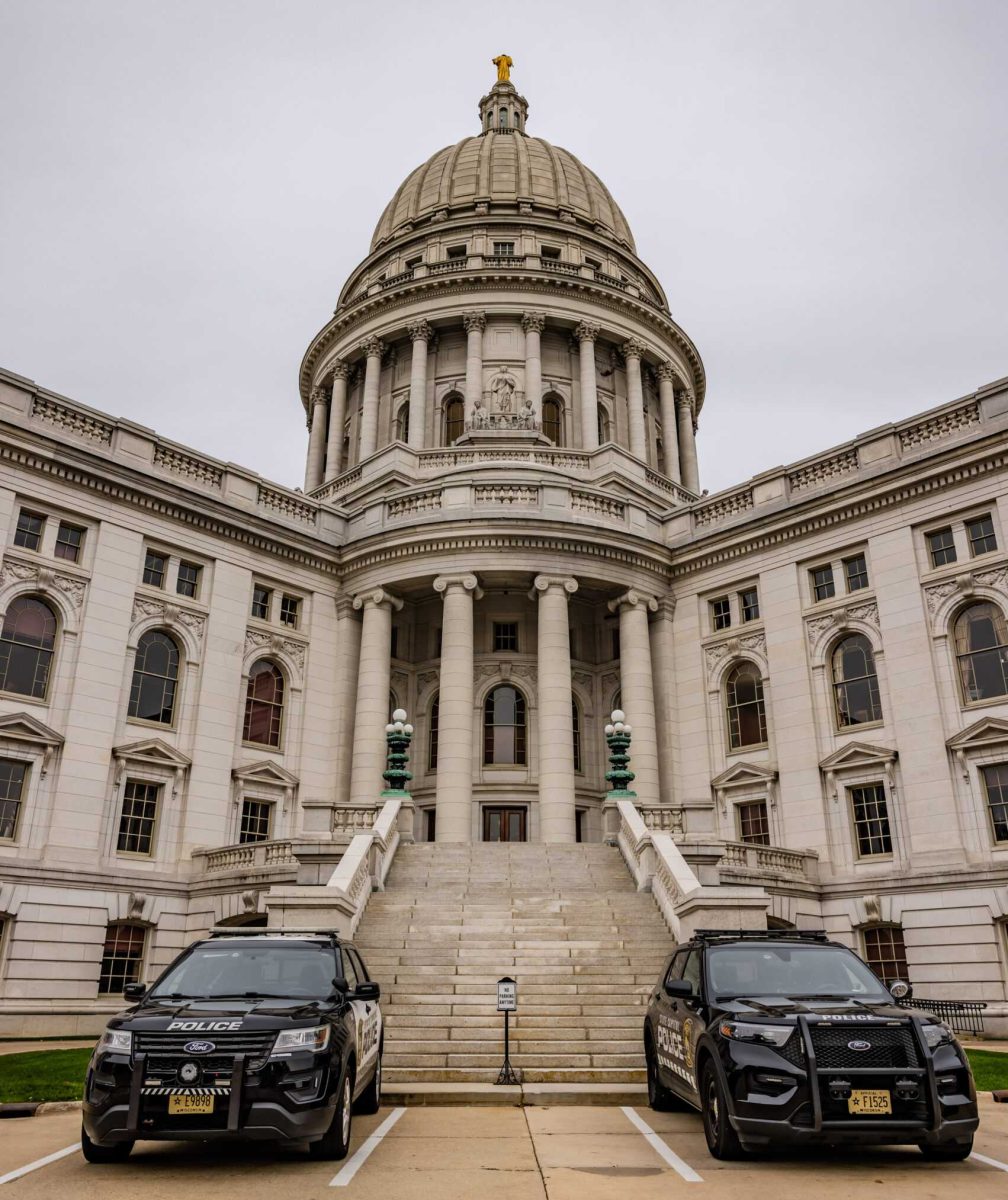Following the Youth Climate Strike that took place globally March 15, which included a demonstration in Madison, the Madison City Council approved one of many recommendations made by Wisconsin high school students to help the city achieve 100 percent renewable energy by 2030.
The recommendation is the third of three scenarios outlined in a report presented by the Sustainable Madison Committee. The report was published last November after Madison became the 25th city in North America to set a goal of achieving 100 percent renewable energy and zero net carbon emissions.
The third scenario focuses on using known measures to reduce Madison’s carbon footprint and reduce Madison’s reliance on renewable energy certificates and carbon credits. Renewable energy certificates and carbon credits have allowed Madison to offset its carbon emissions by investing in renewable energy projects in other places such as wind farms and solar energy plants, according to the Environmental Protection Agency.
Madison city Ald. Zach Wood, District 8, said that scenario three is the most effective because while the other two options rely heavily on RECs and carbon offsets, this scenario is a significant investment in Madison’s infrastructure.
“The city of Madison is actually altering its own operations, it’s not just buying renewable energy credits. We’re actually changing the energy we’re using and generating some of our own renewable energy with things like solar,” Wood said.
Scenario three also combines many aspects of the first two scenarios by focusing on reducing demand by looking at energy efficiency, addressing supply by using renewable generation and making Madison’s transportation more sustainable, Stacie Reece, Madison’s new sustainability program coordinator said.
Madison has already purchased three electric buses, Reece said, which will work with Madison’s plan for Bus Rapid Transit.
“The BRT system is really designed for main corridors … but beyond those main corridors we will still need the Metro fleet,” Reece said. “So the Bus Rapid Transit … is going to reduce single occupancy emissions … and then electrifying the transit fleet will reduce those emissions for the rest of the community.”
Reece said that scenario three’s emphasis on transportation is important because it is a more long-term investment in the community, adding that contracts for RECs and carbon offsets end but electric buses are “for the long haul.”
Scenario three would be a $95 million investment over 13 years, which is more expensive than the other two scenarios. But, this scenario would also save the city more money over time, Reece said. She explained that with scenario three, Madison is expected to save $78 million in fuel by 2030.
According to Reece, at the end of 2018 about 14 percent of Madison’s energy was renewable, but that number is expected to change drastically in 2019 with the implementation of scenario three.
Wood cited a recent report published by the Intergovernmental Panel on Climate Change which found that global warming is likely to reach 1.5°C above preindustrial levels between 2030 and 2052 if it continues to increase at the current rate. Wood said that in light of this report these changes could not come soon enough.
“Madison and every other community on the planet should have been doing this yesterday, as we’ve seen by a number of recent studies … we really don’t have a choice,” Wood said. “The long term viability of this planet as a host for human life and otherwise is in jeopardy and cities like Madison need to lead the way.”
Organizers of the Youth Climate Strike were also motivated by the IPCC report. Max Prestigiacomo, the lead organizer for the Wisconsin Youth Climate Strike and a Middleton High School senior, said that because federal governments are “failing to act” it’s up to individuals and local municipal governments to make a change.
The Youth Climate Strike aims to effect this change while making sure the needs of marginalized groups are prioritized because, according to Prestigiacomo, they are the most impacted by climate change.
Fewer days with frozen lakes may affect Madison culture, community
Prestigiacomo used Madison’s recent flooding as an example of this disproportionate impact, saying that because of his privilege he was able to recover after his house was flooded, however, that was not an option for everyone.
“It really takes a toll more on marginalized communities than it does for privileged communities and I think that’s a fact that we don’t really recognize enough,” Prestigiacomo said. “As youth we wanted to bring that to the forefront of the conversation because we didn’t think that our politicians were really talking about it.”
Prestigiacomo added that youth are able to be more empathetic to injustices across the globe because of how interconnected the internet has made his generation. He said that social media allows a diverse group of voices to be heard.
One voice trying to be heard on University of Wisconsin’s campus is that of the members of Campus Leaders for Energy Now. CLEAN was started in 2017 in an effort to get UW to commit to using only renewable energy by 2030.
Cara Nastali, a UW senior studying civil engineering and executive board member of CLEAN said that UW’s energy is currently only 11 percent renewable, adding that UW is one of the only Big Ten schools without a plan for converting to renewable energy.
Though UW is focused on increasing energy efficiency, UW leaders are not motivated enough to pursue renewable energy, Nastali said.
“UW’s been putting off going more renewable and lately it seems like there’s a disconnect between the university and what the actual city wants to do,” Nastali said. “It just seems like they always have the same excuses.”
UW’s excuses include lack of funding, poor timing and the current political climate, Nastali said.
Wood said that he hopes Madison can be a leader in the renewable energy movement and influence others to adopt similar goals.
“The city of Madison’s own operations are just a small drop in the bucket and in order to really mitigate climate change it’s going to take significant reduction in energy usage and carbon emissions in the private sector,” Wood said.

















